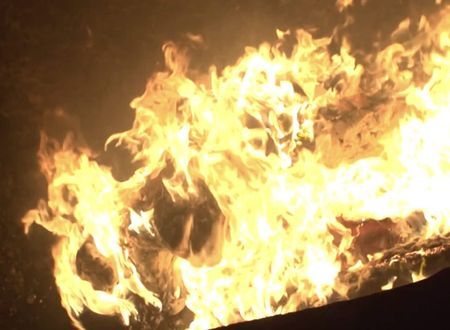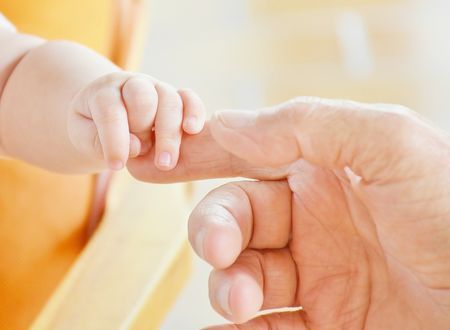I’ve written before about the challenges I faced while growing up. We all have our stories of adversity and how we overcame them. For some of us, maybe our families support us through this process and help us come out the other side. For others, perhaps it is family members who themselves represent the adversity. I have one older brother, and we maintained a close relationship growing up, despite being very different in our personalities and how we chose to play the hand that life dealt us. Despite our differences, I always knew he had my best interest at heart when we were growing up. He acted sometimes more like a father figure than a brother, despite our relative age (he’s 1.5 years older).
Unfortunately, about four years ago, we had a falling out. I thought it would be a temporary situation that would resolve given time. I believed that we were family; brothers don’t just cut each other out of their lives. Yet, we remain estranged to this day, and nothing I have tried to do has changed that.
During these last four years, I invited my brother to my kids’ birthday parties and other events. The invitations went unanswered. Every time I would visit my family’s home in Santa Cruz, CA (where he lives with my step Dad and Mom), he would always make sure he was not home or on his way out when I would arrive. At most, he would say a couple of words to my wife and me, but then we would not see him for the rest of the time we were visiting.
I experienced intense pain during this time of my life and chronically ruminated over what I could have done or said to have prevented this fracture in our relationship. As it turns out, I am not alone in this challenge; according to today.com, “More than a quarter of Americans, 27%, are estranged from a close relative, with almost a third of this group estranged from a sibling”. There are many reasons why estrangements can come about; Sibling rivalries, trauma, disputes over inheritance, disputes over how to care for aging parents, incompatible personalities, and more.
A profound sense of loss and grief gripped me, and it felt almost as if my brother had died. The fracture in a relationship that I assumed would last a lifetime has forced me to contemplate my identity outside of the confines of my family of origin. Who am I? It is a powerful question indeed that can lead you to discover your truth. Of course, biologically, I am a brother still, but the meaning and importance of that role have changed since this incident.
The stigma of not being able to maintain such a significant relationship is undeniable. It’s hard to admit I don’t have a relationship with my brother. This stigma contributes to the lack of research on this subject that’s out there. It’s embarrassing and humiliating initially, but now if someone asks, I say we are not that close and leave it at that.
Luckily I was able to ask Swamiji for some advice in one of the Swaminars. I briefly explained the situation, and he gave me some of the best advice I’ve ever received. Paraphrasing, he said: Give it your best shot once and if it doesn’t work, then move on without any guilt or resentment. Sometimes these things act as catalysts on our spiritual path.
Once I received that message from Swamiji, I contacted my brother again and set up a time to see him. I gave it my best shot, but it seemed it was not enough. In fact, during that conversation, after an hour of talking and getting nowhere, I asked my brother: “What is it I can do to make you want to participate in this relationship?” His response surprised me. He said if I stopped going to psychotherapy and stopped my spiritual pursuits, those were the conditions of his coming back to the proverbial table. Those were two of the anchors of my life, and I was shocked that he would ask me to give those up. I realized then and there that I had reached a point where I could put my hand on my heart and say that I had given it my best shot, but it was not enough. To this day, we remain estranged, and I’ve made no attempts to contact him since then.
Of course, it’s still not so easy as I sometimes see him when I visit my family in my hometown. For the first couple of years, I remained hopeful that, given time, my brother’s emotions would subside, and he would want to reconnect. Every time I would see him, my hopes would be high that maybe this would be the end of this painful period.
I wish him the best and hope he can find some peace in his life. Our childhood was not easy, and we all have different ways of coping with those early troubles. Annie Wright, a licensed psychotherapist, wrote a great article (https://www.anniewright.com/siblings-cope-with-trauma-differently/) about how siblings growing up in the same traumatic and chaotic household can respond very differently to that upbringing.
She says: “Siblings who grow up in the same dysfunctional home environment can have wildly different responses to their upbringing as adults, and this can often greatly challenge their relationship as adult siblings.”
One memory comes to mind that illustrates the impact of subjective experiences coupled with different coping mechanisms. When I was in 4th grade (or thereabouts), my brother and I lived with our father. My Mom and Dad were divorced, but she was living nearby at the time. She told my Dad she wanted to take us on vacation. We flew with her from California to Boston. Then, the plan was made clear to us; my Mom intended to keep us permanently, so the vacation had turned into something entirely else!
I remember her calling my Dad from a little apartment in Boston she had rented to tell him her plan. He asked to talk to me and said that if I wanted, I could just come home. Implying my brother would stay with my Mom and I would go back with him. It was a strange experience staring at my Mom and brother while having this conversation with my Dad. A lot of thoughts and feelings went through my mind. I know I didn’t want to leave my brother – he was my safety net and a sort of filter to all the uncertainties that made up our lives. I could see the world through his eyes and let him do the heavy lifting. You can imagine how this situation would make my brother feel, too, and it is not something any child should have to endure. However, we experienced and processed this situation differently based on our temperments, coping mechanisms, and relative ages.
It is complicated because my brother is not dead. I cannot mourn him the way you would someone that is no longer on this planet. Psychologically though, he is beginning to disappear. I no longer ruminate over what I could have done differently or what words I could say to make him want to return to the relationship. In my heart, I know I gave it my best, and that gives me peace of mind.
It brings up the question, what does moving on entail? First, it is allowing me the space to define who I am on a different level than I have ever experienced. Our family of origin is a big part of our life, but sometimes they include generational curses that we need to break and not pass down to the next in line. These curses represent a sort of cumulative total of the conditioning we received from our parents, who themselves distilled the actions, beliefs, sins, and righteous acts of their forefathers. But, on the contrary, these challenges are a blessing. How else would we test and grow our strength than to face our fears and finish them forever?
It can feel embarrassing, even shameful, to talk about these things because of the attached stigma. If you need to move on from someone important in your life because the relationship has turned toxic, then please do it with mindfulness and make sure you have given it your best shot before throwing in the towel. You do not want to wonder if you could have done something else to salvage the relationship. Knowing you did all you could enable you to move on without guilt. No guilt.
And if the person is no longer in your life, what is the purpose of harboring resentment? They are living their life. They may be dancing and singing and have no idea how much anger is eating you up inside. Forgiveness, in this case, can be challenging because, presumably, this other person is not seeking forgiveness because they do not think they did anything wrong. But forgiving, in this case, does not make you a loser, don’t let your ego tell you that. On the contrary, it makes you a winner as letting them off the hook will free you up to move on with no resentment in your heart. No resentment.









Comments & Discussion
90 COMMENTS
Please login to read members' comments and participate in the discussion.